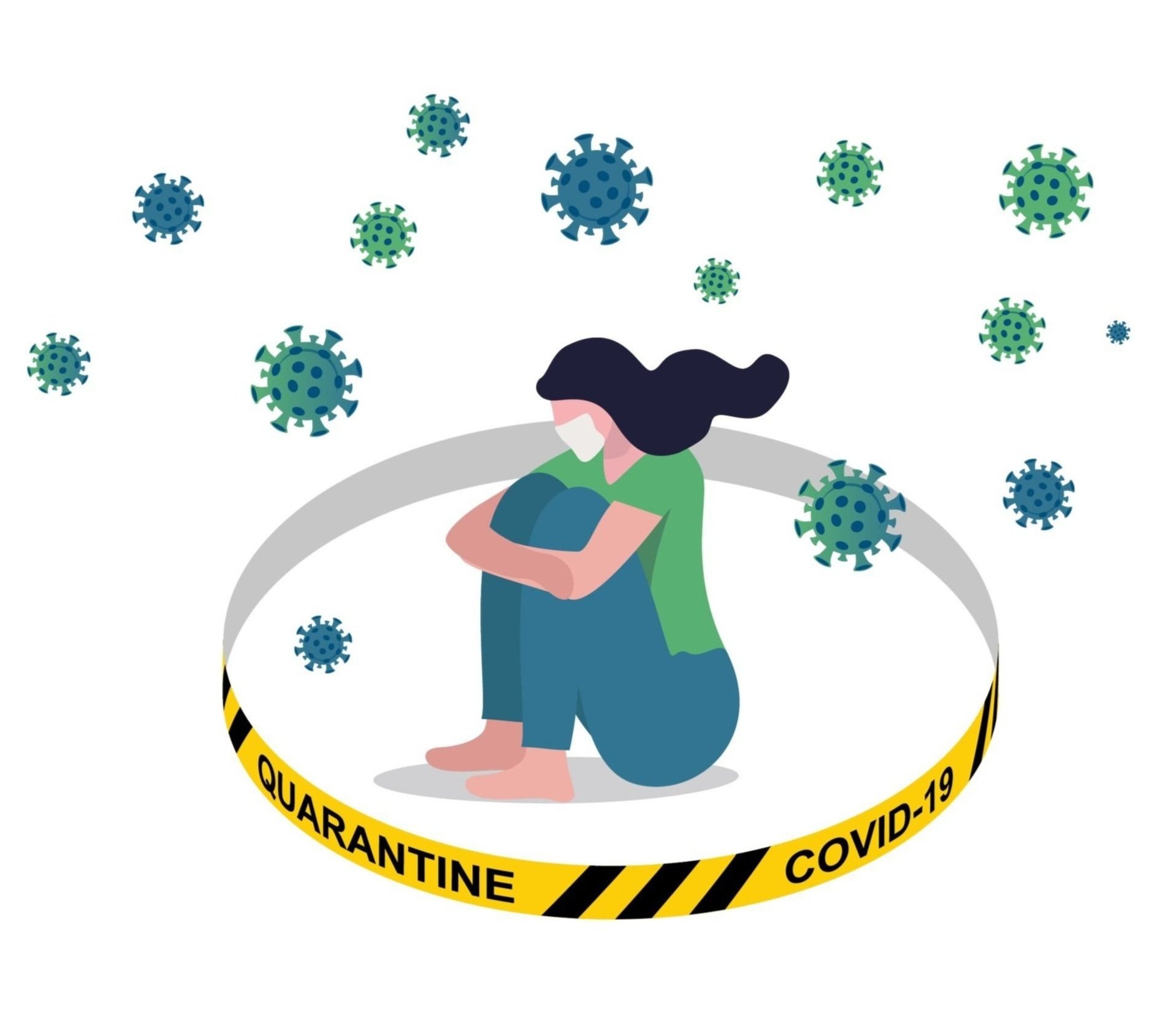Findings of COVID-19 and the mental health of British Muslim
63% of health care workers who died from COVID-19 were ethnic minorities (British Medical Association, 2021). There is growing evidence of specific mental health consequences from significant COVID-19 infection, with increased rates of not only post-traumatic stress disorder, anxiety and depression, but also specific neuropsychiatric symptoms. Given the higher risks of mental illnesses and complex care needs among ethnic minorities and also in deprived inner city areas, COVID-19 seems to deliver a double blow. Physical and mental health vulnerabilities are inextricably linked, especially as a significant proportion of healthcare workers (including in mental health services) in the UK are from BAME groups (King et al 2021). It is unlikely that ethnicity in itself is the cause of differences in the mental health and wellbeing impact of the pandemic. Instead ethnicity may be correlated with other factors that may cause a difference. It remains difficult to draw conclusions about ethnicity, interactions with gender and mental health during the pandemic (Public Health England, 2020). People of the Muslim faith experience poorer recovery rates in Improving Access to Psychological Therapies services than any other faith group (NHS Advancing mental health equalities strategy 2020). In this it is important to note that only 33% of Muslims with concerns regarding mental health would discuss them with mental health professionals (Aapki Awaz Report 2007).

Pre-existing racial and socioeconomic inequalities, resulting in disparities in co-morbidities between ethnic groups, have been amplified by COVID-19 in this the ability to cope physically mentally or economically, to protect oneself or family and to shield from COVID-19 have differed significantly. According to a Runnymede Trust Survey (2020);
Black and minority ethnic (BME) people face greater barriers in shielding from coronavirus as a result of the types of employment they hold (BME men and women are over- represented among key worker roles); having to use public transport more; living in overcrowded and multigenerational households more; and not being given appropriate PPE (personal protective equipment) at work.
One in twenty BME people (5%) have been hospitalised with the virus, compared with one in a hundred white people (1%).
15% of black people say they personally knew someone who had died with the virus, with this figure rising to 19% for people of African Caribbean backgrounds.
BME people are also more likely than white people to live with someone (including children) who may be vulnerable to coronavirus due to a disability or health condition (38% of BME groups vs 31% of white groups).
Greater proportions of BME key workers (32%) reported that they were not given adequate PPE compared with their white counterparts (20%). Among those in this position, 50% of Bangladeshi, 42% of Pakistani and 41% of Black African respondents reported that they had not been given adequate Personal Protective Equipment (PPE).
People of Bangladeshi and Black African origin (34% and 33%, respectively), followed closely by people of Pakistani origin (29%), were the most likely to report that they had experienced all of the three forms of racism – racially motivated attack, being treated unfairly because of their ethnicity or an increase in racism/racial abuse since the start of COVID-19.
The Lateef Project provides religiously appropriate mental health services to British Muslims. From August 2020, The Lateef Project expanded its service through time limited funding to work across England with a team of 10 part time Islamic counsellors in recognition of heightened need. The service worked with adults with common mental health problems. This was offered to;
Those who were COVID-19 bereaved.
Those whose ongoing mental health problems had been exacerbated by the impact of the pandemic.
Those with new mental health problems.
Historically the Lateef Project has found that Muslim mental health has too often been complex and compound. The health impact of COVID-19 as well as the concerns it has raised for maintaining one’s own or family safety, the isolation and loss of faith and of social networks, disproportionate loss of income, and the future uncertainty that the pandemic has brought has increased the
For some this has been underpinned by previous anxiety and depression, PTSD, or financial insecurity, domestic violence and or sexual abuse. There has been a spike in the presentation of clients in the context of domestic violence. For some of our clients the lockdowns in the pandemic have resulted in continued confinement in an ongoing abusive relationship and with this a worsening of previous mental health conditions, sometimes specifically exacerbating their experiences of PTSD. Such experiences have not been exclusively amongst female clients or exclusively related to the traditional model of a singular relationship with an abuser. Violent abusive relationships have been central to the presentations of anxiety in some male clients in lockdown. In some multigenerational households abusive relationships have been further complicated by the clients needing to negotiate a number of relationships with abusers simultaneously. Often in these circumstances there have been additional issues regarding the safety or welfare of children.
Re-traumatisation of people with previous experiences of PTSD has also been present in a number of our clients, specifically issues related to childhood abuse where confinement in the lockdown has led to the client being confined within the home in which they experienced this.
Income instability has been a concern for a number of professionals leading specifically to pandemic related issues of anxiety particularly in relation to locum doctors, teaching staff and pharmacists. There have been job losses among Muslim clients across different income brackets reflecting the job insecurity that has resulted for the community within the pandemic. In many respects Muslim key workers irrespective of any underlying previous histories have often had to address competing needs regarding the risk personally experienced through COVID-19 exposure and isolation as well as attempt to safeguard their families. Where such individuals have been long term carers there have been experiences of fear or guilt exacerbating anxiety specifically when they have been exposed to COVID-19.

Within multigenerational households there have also been issues of anxiety and anger management in relation to the inconsistent behaviour of various residents leading to multigenerational risks. An additional complication has been the exhaustion, lack of motivation and related depression experienced within the community by individuals who have experienced COVID-19 or long COVID-19 but, due to their economic need are unable to isolate or recuperate. Here often in concert with depression or anxiety there have been immense feelings of guilt and concern as individuals make decisions that are known to potentially have serious impact.
Complex family related stresses in the context of Muslim cultural norms and the pandemic have been exacerbated with complex losses of key family members, familial roles and related changes in family dynamics. This is as well as the reduced degrees of freedom that remaining within a family home for many months have brought to some women and young people. The pandemic, particularly the impact of the prolonged lockdowns, has been seen by a number of clients as a contributory factor in the breakdowns of their marriages and related issues with their mental wellbeing.
The complex multiple negative experiences endured within the community have resulted in existential crises. For a number of our clients amidst the array of issues the virus has raised has been a spiritual crisis, often in the form of a profound questioning of the client’s belief or trust in Allah. These have manifested in some of our male clients differently, through changing gender relationships in their homes and or in relation to their health changes in their ability to live within their self-concept. Some male clients have experienced a crisis in self-worth related to their understanding of order within Islam. For a number of female clients, histories of coping due to their faith with abuse in various forms stalled through their intolerable experiences in the pandemic.
These presentations have been addressed with up to 18 sessions of counselling in Bengali, English, Mirpuri, Turkish Spanish or Urdu. Other specialist Muslim mental health organisations have been providing services in various languages within the Muslim community. In relation to Islamic counselling and other therapeutic interventions for the Muslim community the Lateef Project has worked with other services such as Nour, Paiwand and Inspirited Minds. On reflection the key concerning is the overall lack of appropriate provision regarding an ongoing mental health pandemic in the context of COVID-19 that seems to have an epicentre on Muslim and Black Asian and Ethnic minority communities. Whilst funding is diminishing, referrals are increasing with over 100 in March 2021.
At the time of writing a new joint service for Muslim health care staff affected by the pandemic is being piloted in partnership with the NHS England, NHS Improvements Health and Wellbeing Team, the NHS Muslim Network, Inspirited Minds and the Lateef Project. This joint service in 6 weeks received 103 referrals and has had to stop taking new referrals. Among the clients the Lateef Project is supporting under this programme are 13 mental health professionals and 9 doctors.
Our experience indicates that Covid-19 has turned the unaddressed Muslim mental health crisis into a catastrophe, impacting many in the community who can or cannot access services with its inequitable impact on Muslims everywhere.
Book segment taken from ‘COVID-19, health inequalities and the lived experience of British Muslims.’
Written by Abdullah Stephen Maynard, contributing author.



